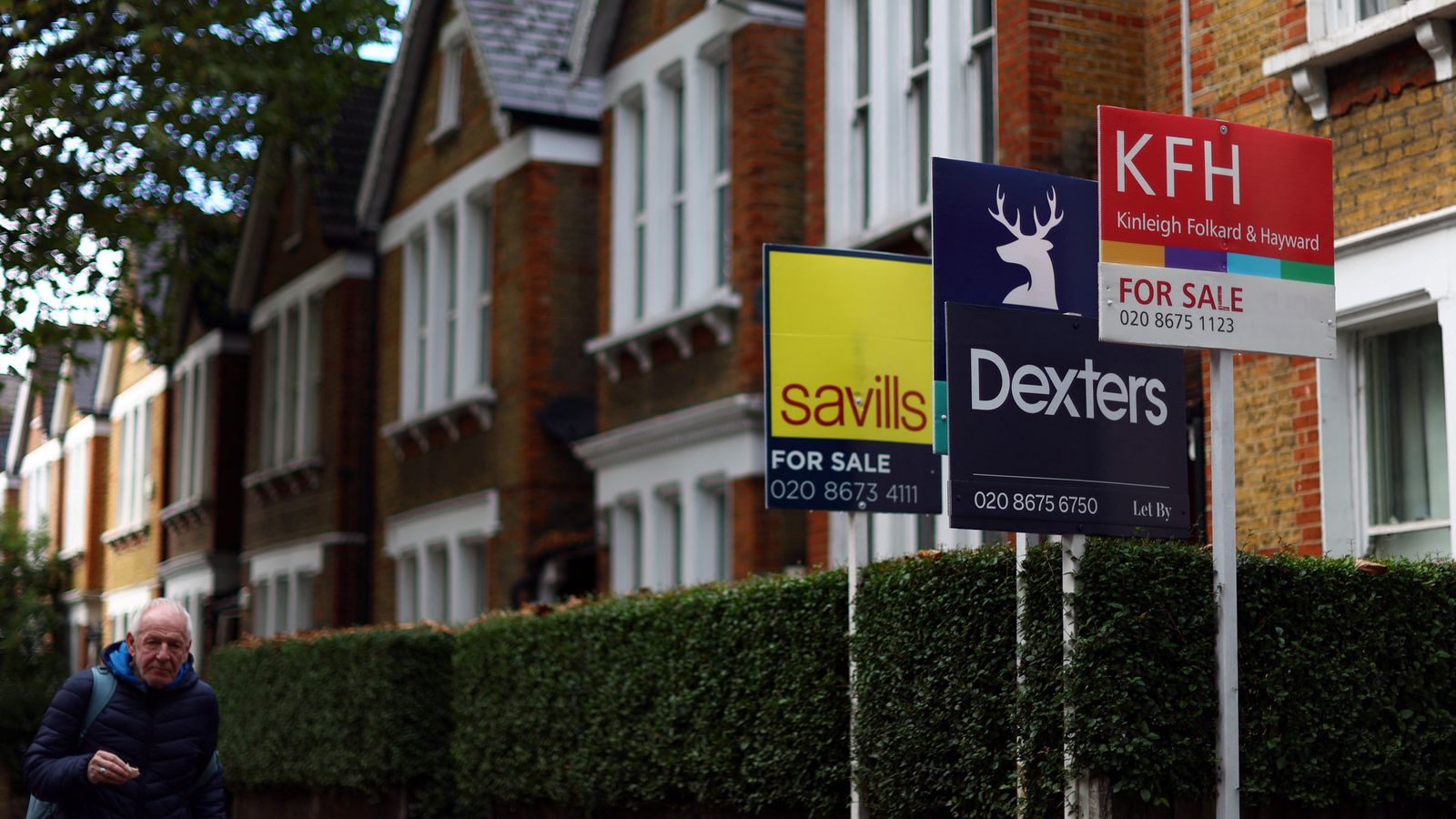UK house prices suffer biggest annual decline since 2009

House prices fell by 3.1% year-on-year in March, marking the biggest annual decline since July 2009, Nationwide Building Society said.
The figures also showed a monthly price fall of 0.8% – the seventh consecutive fall – which leaves prices 4.6% below their August peak.
The average UK house price in March was £257,122.
Robert Gardner, Nationwide’s chief economist, said: “The housing market reached a turning point last year as a result of the financial market turbulence which followed the mini-budget.
“Since then, activity has remained subdued – the number of mortgages approved for house purchase remained weak at 43,500 cases in February, almost 40% below the level prevailing a year ago.
“It will be hard for the market to regain much momentum in the near term since consumer confidence remains weak and household budgets remain under pressure from high inflation.
“Housing affordability also remains stretched, where mortgage rates remain well above the lows prevailing at this point last year.”
Prices declined in most regions
Nine out of 13 regions saw house prices decline on an annual basis in the first financial quarter.
Advertisement
• Scotland’s performance was the weakest, with prices down 3.1% compared with a year ago, a sharp slowdown from the 3.3% year-on-year increase in the previous quarter
• East Anglia had been the strongest-performing region last quarter but in this quarter prices were down 1.8% year-on-year
• The outer South East fell 1.5% year-on-year
• London was down 1.4%
• The West Midlands, however, registered the strongest performance, with prices up 1.4% compared with a year ago
• Prices in Northern Ireland were up 1.3% year-on-year
• In Wales, price growth slowed from 4.5% to a decline of 0.7%
• Prices were largely flat in northern England
• Southern England saw a 1.1% decline
Buyers can no longer test the market at higher prices
Nathan Emerson, chief executive of Propertymark, the professional body for estate agents, said: “Our member agents are reporting transaction levels year on year to be stable and listings of new properties coming to the market also being steady.
“With a stream of serious buyers still keen to move, and prices still higher compared to this time last year, sellers are still in a strong position to sell, however they can no longer test the market at higher prices and align with those achieved last year. Instead, they will need to reduce or be open to offers in order to get a more realistic and efficient sale.”
:: Listen and subscribe to The Ian King Business Podcast here.
Myron Jobson, senior personal finance analyst at interactive investor, said: “While the consensus is that house prices will fall this year, it is a more nuanced picture.
“Property values may indeed fall in very stretched areas, and for other areas, prices may not change very much – if at all.
Read more business news:
UK economy grew slightly and avoided recession
Potential for UK to experience persistent inflation, Bank of England chief economist says
“The housing market remains a frustrating one for would be buyers, fraught with uncertainty and unpredictability.
“The affordability crunch could mean that existing homeowners may wait to list their properties, since many have already locked in lower mortgage rates, creating little incentive to sell and buy again until rates are more attractive.”